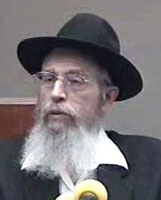- Sections
- P'ninat Mishpat
998
Ruling: The Shulchan Aruch (Choshen Mishpat 1:2) rules that nowadays, when we do not have dayanim with authentic semicha, beit din cannot make one who damaged another person bodily pay for depreciation of his value or for pain but can make him pay shevet and ripuy. Although the Rama (ad loc.) cites the Rosh’s opinion that he does not even have to pay shevet and ripuy, since both parties are Sephardi, they are to be held to the Shulchan Aruch’s opinion.
In general, one who directly causes damage to another is obligated to pay even if it happened by accident and even through an oness (Bava Kama 26a). We do accept Tosafot’s opinion that if it was a total oness, then he is exempt (Shulchan Aruch, CM 421:4). However, in this case, it turns out that Reuven had not slept enough the previous night, and halacha recognizes the responsibility of one who has a job that requires concentration to sleep sufficiently the night before (Yerushalmi, D’mai 7:3). Sometimes, one who was negligent but then an unexpected oness happened is not obligated, but in this case, it is not unexpected that someone who is tired will fall asleep at the wheel (the safety authorities warn about it often).
We find that within the laws of watchmen, if one who sleeps and then the object he was watching is lost, it is not considered an oness to exempt a paid watchmen (Shulchan Aruch, CM 303:2). It is the responsibility of such a watchman to stay awake. Certainly, it is the responsibility of a driver to stay awake! There is basis to distinguish between a case where someone went to sleep on purpose and a case like ours where Reuven dozed off accidentally (see Nimukei Yosef to Rif, Bava Metzia 53b). However, since Reuven did not take the necessary steps to avoid it, he should be obligated. Not only did he not sleep enough before the trip, but he should have pulled over to the side of the road when he felt he was getting tired. Thus, he is close to negligence.
Reuven cannot claim that since the accident took place as the car continued while he was sleeping, it should be considered damage through gerama (indirect causality). Many sources in many contexts demonstrate that processes that machines continue after man sets them into motion are considered actions of man (see Har Tzvi, Orach Chayim 134; Chazon Ish, Moed 36).
Among contemporary poskim relating to a driver falling asleep, the Shevet Halevi (VIII, CM 301) says that if they were taking a long trip and the driver fell asleep toward the beginning, he was certainly at fault, but that this is not necessarily true if he fell asleep well into the trip, as even one who is well-rested can become tired. However, it is our belief that there should be culpability in any case because of the ability of a driver to sense his exhaustion and pull over to the side.

A Student Who Broke a Camera
Various Rabbis | Tevet 5768

Ending Rental Due to Extenuating Circumstances
Various Rabbis | Tevet 5768

P'ninat Mishpat: Used Car with a Faulty Motor
based on ruling 84020 of the Eretz Hemdah-Gazit Rabbinical Courts
Beit Din Eretz Hemda - Gazit | Shevat 5784

P'ninat Mishpat: Rental of an Apartment that Was Not Quite Ready – part I
based on ruling 82031 of the Eretz Hemdah-Gazit Rabbinical Courts
Beit Din Eretz Hemda - Gazit | Nisan 5784

Providing Non-Kosher Food
Various Rabbis | 5774

What Is the Significance of the Number 40 in Jewish Tradition?
Rabbi Stewart Weiss | Tevet 4 5782

Study House of Shem & Ever in a world of Lavan
Rabbi Berel Wein | Kislev 5768

Performing a Proper Hesped
Rabbi Yirmiyohu Kaganoff | 5771

The Yom HaZIKARON SIREN- EVERY ARROW NEEDS A HEAD!
Rabbi Ari Shvat | Iyar 5785

Reassuring His Parents – #314 – part I
Date and Place: 23 Sivan 5670 (1910), Yafo
Beit Din Eretz Hemda - Gazit | Iyar 5785

Ask the Rabbi: Scratching Improperly Parked Cars
Rabbi Daniel Mann | Iyar 5785







